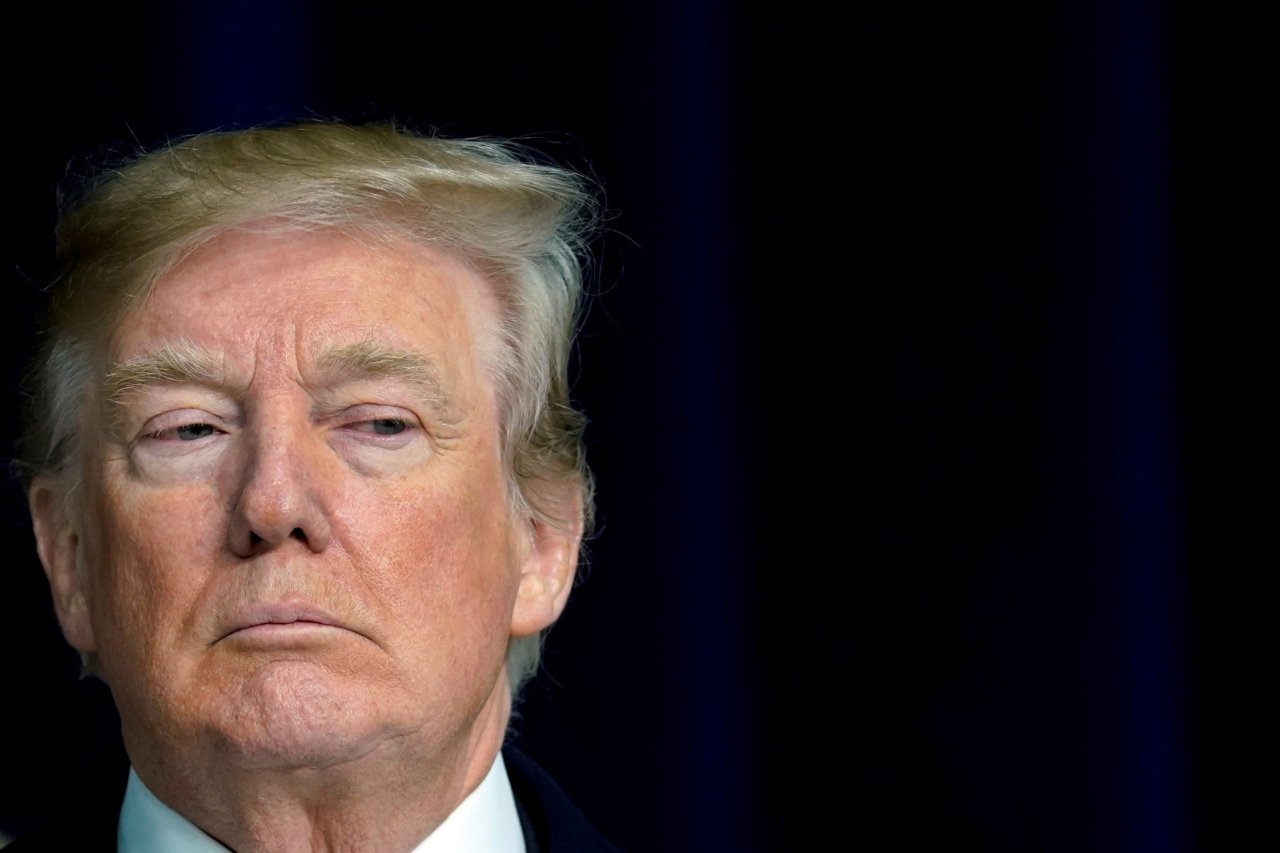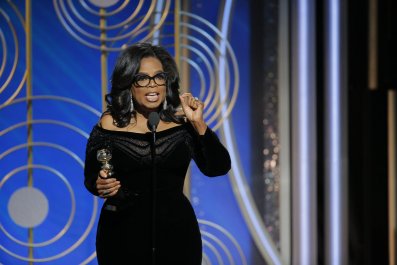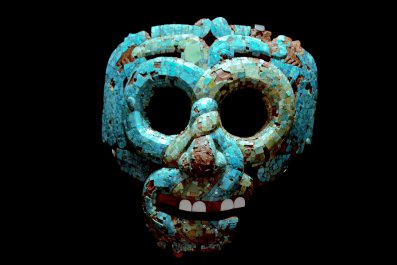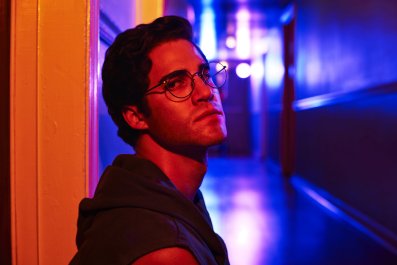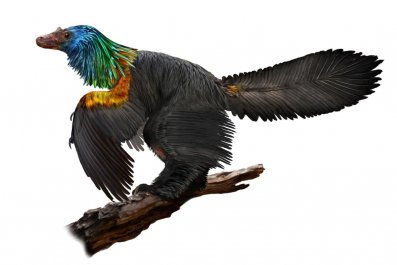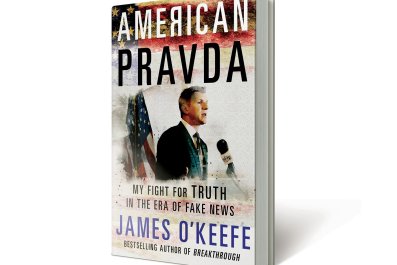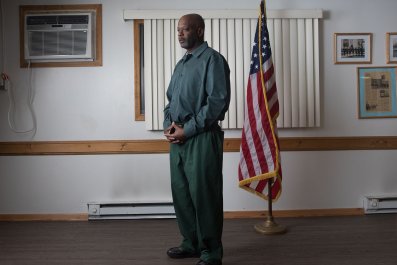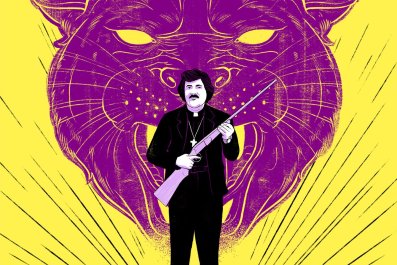Upated | In 1963, the eminent professor Richard Hofstadter stepped to a podium at Oxford University and delivered a lecture that became the basis for one of the most influential articles in political science history. In "The Paranoid Style in American Politics," Hofstadter argued that "American politics has often been an arena for angry minds" which fueled populist movements based on conspiracy theories to explain why they had been "shut out of the political process."
At the time, such forces were coalescing around Senator Barry Goldwater of Arizona, a right-wing Republican whose presidential campaign drew members of the John Birch Society and other extremists convinced that the party's leaders, including President Dwight Eisenhower, were "under operational control of the Communist party."
Goldwater lost the 1964 election in a landslide to Lyndon Johnson, but the notion of a secret cabal at the center of the government never went away. In the 1960s and 1970s, it was revived by the left, this time positing a secret CIA-Pentagon conspiracy to explain everything from the war in Vietnam and U.S.-backed coup d'états around the world to the assassination of President John Kennedy. Its urtext was The Secret Team, by L. Fletcher Prouty, a disillusioned former Pentagon special operations colonel who laid out a conspiracy of CIA agents, military contractors and powerful hidden business interests to explain America's moral, economic and political decline.
It's not clear how and when Trump adopted the Deep State bogeyman as a favorite target, but the basic idea behind it had been in circulation for decades—even the moderate Eisenhower had warned of a "military-industrial complex" in his 1961 farewell address. More recently, the Deep State concept was "popularized in Turkey" in 2012, according to various news sources, when many Turks used it "to refer to alleged criminal networks within security forces and the government bureaucracy." But Hofstadter, who died in 1970, might well have said it stemmed from Trump's inherent paranoia, which he defined as "a chronic mental disorder characterized by systematized delusions of persecution and of one's own greatness."
Related: Putin's man in the White House?
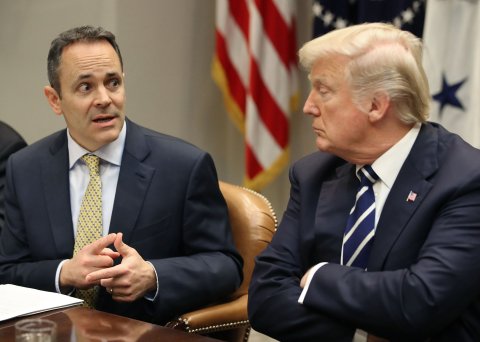
Michael Wolff's explosive new book, Fire and Fury: Inside the Trump White House, offers some more concrete clues. To his friends and critics alike, he writes after intermingling freely with the president and his aides inside the White House for months, Trump's mind was (and is) an empty vessel, into which any vendor can pour ideas.
One of Trump's constant whisperers was Michael Flynn, his campaign "buddy" and national security adviser, Wolff writes. Fired from his job at chief of the Defense Intelligence Agency for his eccentric leadership style, Flynn constantly dumped on the U.S. intelligence establishment and found an eager audience in the New York real estate mogul. "Trump loved to hear complaints about the CIA and the haplessness of American spies," Wolff writes. In a contrapuntal theme, Breitbart, the nationalist news site headed by Trump campaign chief and later White House head of "strategy" Steve Bannon, regularly served up conspiracy theories about how the "Deep State" was driving the multiple investigations into Team Trump's Russia connections. It was "part of the Breitbart lexicon," Wolff writes, and "became the Trump team term of art." Such ideas seemed to fit the candidate's paranoid personality as he transitioned from business tycoon and reality TV star to, improbably, president of the United States.
Another Deep State whisperer, according to Wolff, was former Nixon administration foreign policy guru Henry Kissinger, who became an unofficial adviser to the campaign via the candidate's son-in-law and confidante Jared Kushner. Kissinger, "who had been a front row witness when the bureaucracy and intelligence community revolted against Richard Nixon" over Vietnam and Watergate, cautioned Kushner against attacking the spy agencies, outlining "the kinds of mischief, and worse, that the new administration could face" from them if Trump's tirades continued, Wolff writes.
And then there was Tony Blair, the former British prime minister allegedly looking for a freelance diplomatic gig in the Middle East with Trump. "In February, Blair visited Kushner in the White House" and "imparted a juicy nugget of information," Wolff writes. "There was, he suggested, the possibility that the British had had the Trump campaign staff under surveillance, monitoring its telephone calls and other communications and possibly even Trump himself." Such an allegation would track with Trump's fervent belief, however unfounded, that U.S. intelligence, a close partner with its British counterparts, had spied on Trump Tower.
Blair called the allegation "a complete fabrication, literally from beginning to end." Whatever the truth, Trump, primed by months of Flynn's whispers of CIA conspiracies, seized upon the idea that he was under surveillance by the Deep State. It "churned and festered in the president's mind," Wolff writes, an assertion borne out when Trump bizarrely tweeted his last-minute opposition to the renewal of National Security Agency's foreign intelligence-surveillance authority, known as Section 702, in the early hours of January 11. "This is the act that may have been used, with the help of the discredited and phony Dossier, to so badly surveil and abuse the Trump Campaign by the previous administration and others?" he typed. The "dossier," of course, was a reference to the reports gathered by former MI6 spy Christopher Steele for Fusion GPS, the firm hired by the Hillary Clinton campaign to investigate the alleged ties between Russia, Trump and his aides.
Two hours later, after a reportedly frantic intervention by House Speaker Paul Ryan, the president assented to the act's renewal, a position that mainstream Republicans, Democrats and his own national security advisers had consistently backed.
But Trump's darkest suspicions about his intelligence agencies are not likely to abate, even after removing James Comey from the FBI and installing Mike Pompeo, a Tea Party Republican who evidently entertains at least some of the president's conspiracy theories, to run the CIA. The Deep State bureaucrats in the intelligence community, Trump was sure, were out to get him, a conclusion reinforced by "intelligence leaks regarding his purported Russian relationships and subterfuges," Wolff writes, not to mention the revelation, after his book was finished, that a least some FBI agents harbored anti-Trump sentiments.
The president's mindset "seemed to align him with the left and its half century of making a bogeyman of American intelligence agencies," Wolff adds. "But in quite some reversal, the liberals and the intelligence community were now aligned in their horror of Donald Trump." As if to ratify Trump's fervid paranoia, in November former CIA and NSA director Michael Hayden inaugurated a new intelligence studies program at George Mason University with a speech he called, "Truth Tellers in the Bunker: Evidence-Based Institutions in a Post-Truth World"—by which he meant the media and spy agencies.
The former Air Force general seemed giddy about the odd-fellows partnership. "My tribe is reluctant to talk to the outside world and very often does so only when it's trying to defend itself after some accusation," he said at the event. "Far better to establish routine contact with the press.…"
That the president is free to embrace "alternative facts," as his aide Kellyanne Conway once put it—and seems to get his most views from Fox News and even overtly racist corners of the internet—presents a formidable challenge now to "fact-based" dialogue. Or as former Assistant Attorney General Jack Goldsmith said at the Hayden event, "it will be hard to recover" from Trump's affirmation of the paranoid worldview once consigned to the lunatic fringe.
Trump's sense of persecution helps explain why Trump continued to defend Flynn after his dalliances with the Russians were exposed, despite the danger doing so posed to his own presidency, Wolff writes. "Flynn's enemies were his enemies…the more doubts gathered around Flynn, the more certain the president became that Flynn was his all important ally."
Every intelligence briefing or congressional report on continuing threats from Russia, moreover, would only serve to buttress his claim that he was under attack from within—or worse, that his own spy agencies were actively bugging him.
In the real world, however, as opposed to the one Trump inhabits, there are insurmountable legal barriers to prevent the FBI and NSA from electronically surveilling him. "It's inconceivable," says Susan Hennessey, a former senior NSA lawyer, that "they would have attempted to obtain [a surveillance warrant] on a sitting president." It's likewise inconceivable in today's Washington, where leaks abound, that a rogue intelligence unit would have tried to go around the law. What Trump seems to have misunderstood—or deliberately mischaracterized—is legal U.S. eavesdropping on Russian targets that picked up the conversations and emails between them and his associates Flynn, Paul Manafort, Carter Page and possibly George Papadopoulos.
In his article, Hofstadter was careful to say he was not making a clinical diagnosis of political figures on the fringe. He had invented the idea of "a paranoid style, simply because no other word adequately evokes the sense of heated exaggeration, suspiciousness, and conspiratorial fantasy that I have in mind." He added that "the idea of the paranoid style as a force in politics would have little contemporary relevance or historical value if it were applied only to men with profoundly disturbed minds." What makes it politically "significant," he said, is that such views are adopted "by more or less normal people."
Before he ran for president, Trump was judged "more or less normal," at least by the standards of the eccentric rich and the Tea Party buzzards incessantly picking at the flesh of Barack Obama and Hillary Clinton with their endless investigations, none of which produced evidence of criminal behavior, much less indictments. In such a world, even Trump's fixation with Obama's birth certificate fell within the parameters of "normal."
If anything, he seemed to have carved out for himself a unique role that Hofstadter could never have predicted: the comedic style in American politics. "He was what he was," Wolff writes. "Twinkle in his eye, larceny in his soul." Fox News baron Rupert Murdoch struggled to envision Trump, "a man, who, for more than a generation, had been at best a clown prince among the rich and famous," as president. Even his daughter Ivanka, Wolff says, likened her father to "a douchebag dad" who turned his oddball campaign into "a romantic comedy—sort of." (Ivanka Trump has not commented publicly on the book. White House spokeswoman Sarah Sanders dismissed it as, "trashy tabloid fiction.")
But Trump's comedic shtick did not wear well once he took office. By Wolff's account, even the president's family and closest friends (even though he really doesn't seem to have friends in the usual sense but supplicants and "associates") worried aloud about his mental stability. "He's not only crazy," his friend Tom Barrack supposedly told a friend, according to Wolff, "he's stupid." (Barrack denied saying it.) Wolff's book is replete with similar comments. "I wouldn't give Donald too much to think about," the late Fox News chieftain Roger Ailes advises Bannon at a dinner Wolff attended. The author constantly evokes events and decisions by Trump, notably the calamitous firing of Comey, which demonstrate his "uncertain grasp of cause and effect." The leader of the free world, was "full of phobias about travel and unfamiliar places," Wolff records, not to mention being a self-confessed germophobe. (In one of his books, Trump argued that legendary industrialist Howard Hughes was unfairly maligned because of his infamous fear of germs.)
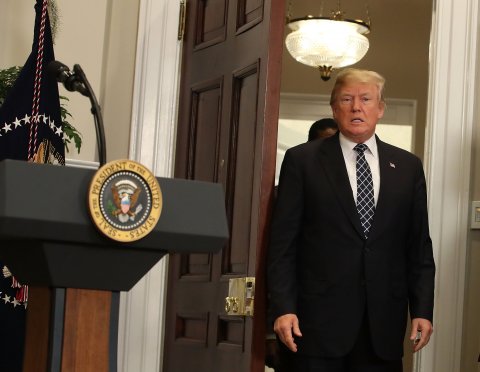
But paranoia strikes deepest in American politics, Hofstadter declared, "when the representatives of a particular social interest—perhaps because of the very unrealistic and unrealizable nature of its demands—are shut out of the political process." But what about when the paranoid are improbably voted in?
Hofstadter had no answer for that, but had he lived long enough to observe Trump, he most likely would have compared him to Andrew Jackson, the Tennessean hero of the War of 1812, who marshalled enough anti-Northern and anti-establishment sentiment to win the presidency in 1829. The autocratic, pro-slavery, Cherokee-annihilating Jackson, Hofstadter wrote, was an "unreflective man" who "swung to the democratic camp when the democratic camp swung to him." But Bannon promoted Trump as the second coming of the largely mythical, "populist" Jackson who had famously taken down the U.S. Bank, run by a self-dealing board of directors with ties to industry and manufacturing. The president glommed onto the idea, Wolff writes, calling Jackson a "swashbuckler" and often guiding visitors to the portrait of "Old Hickory" hanging on his Oval Office wall. But a more apt comparison of Trump to Jackson might have been offered by Thomas Jefferson 200 years earlier, when he called the seventh president of the United States "one of the most unfit men I know of" for the White House, "a dangerous man" who he'd seen "choke with rage" as a senator and who "has had very little respect for laws and constitutions" of the country. Jackson's virtual franchising of mob rule bore out Jefferson's judgment, but the president shrugged off the insult by winning a second term. And whatever the much debated merits of his presidency, he turned out to be one of most consequential presidents in American history.
Trump looks like he may not be afforded that chance. His increasingly volcanic rages—against the media, Democrats, black athletes, Mexicans, the Deep State, courts, the FBI and Justice Department, topped off by an Oval Office tirade against immigrants from "shithole countries"—may well have excited his base but turned off thousands more voters outside it.
Trump's paranoid "style," in fact, might finally have become too paranoid.
Correction: An earlier version of this story said that Hofstadter's 1964 essay on "The Paranoid Style in American Politics" was adapted from his Pulitzer Prize–winning book, Anti-Intellectualism in American Life. As stated earlier in the piece, it was adapted from a speech at Oxford University.



